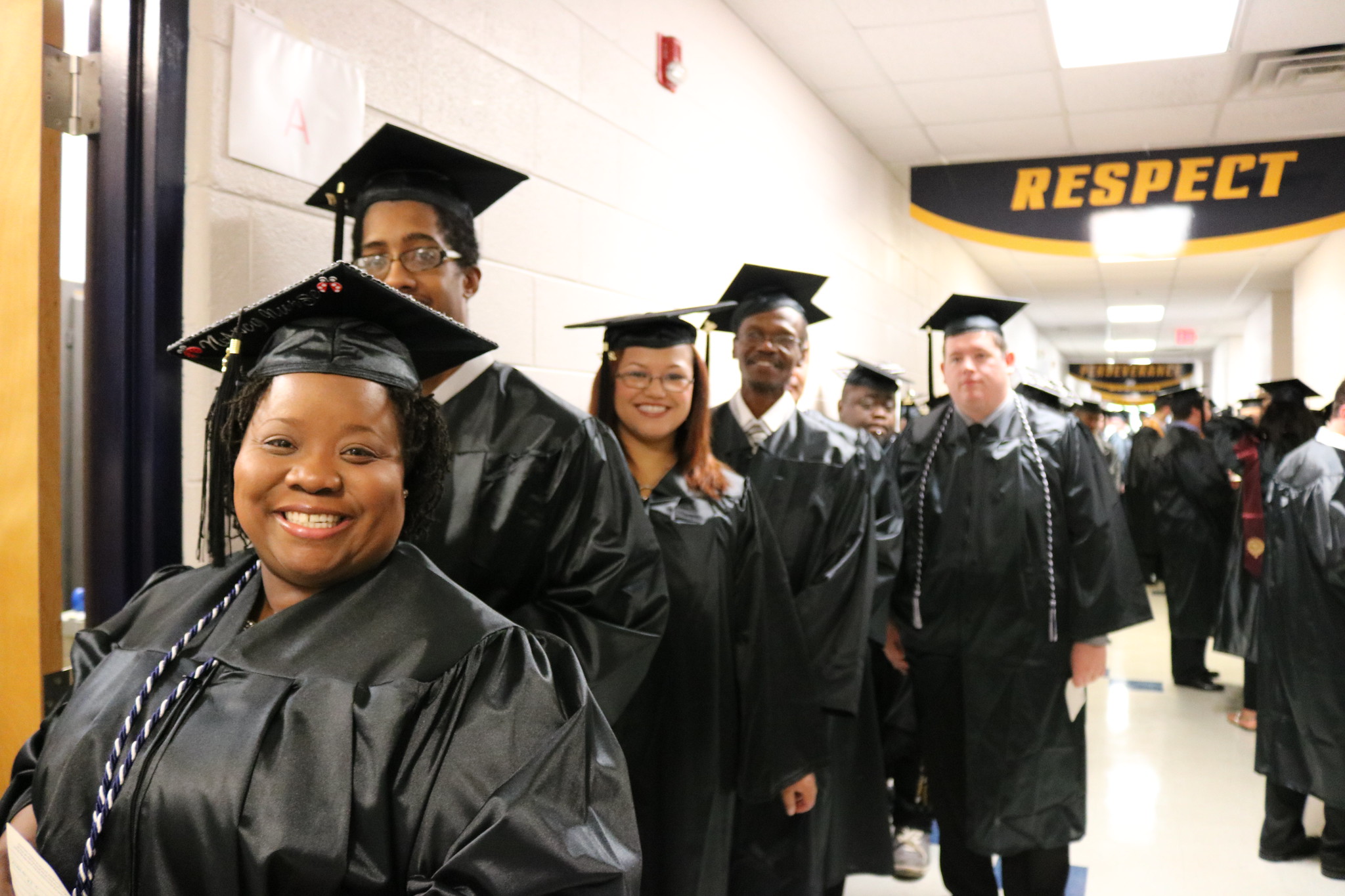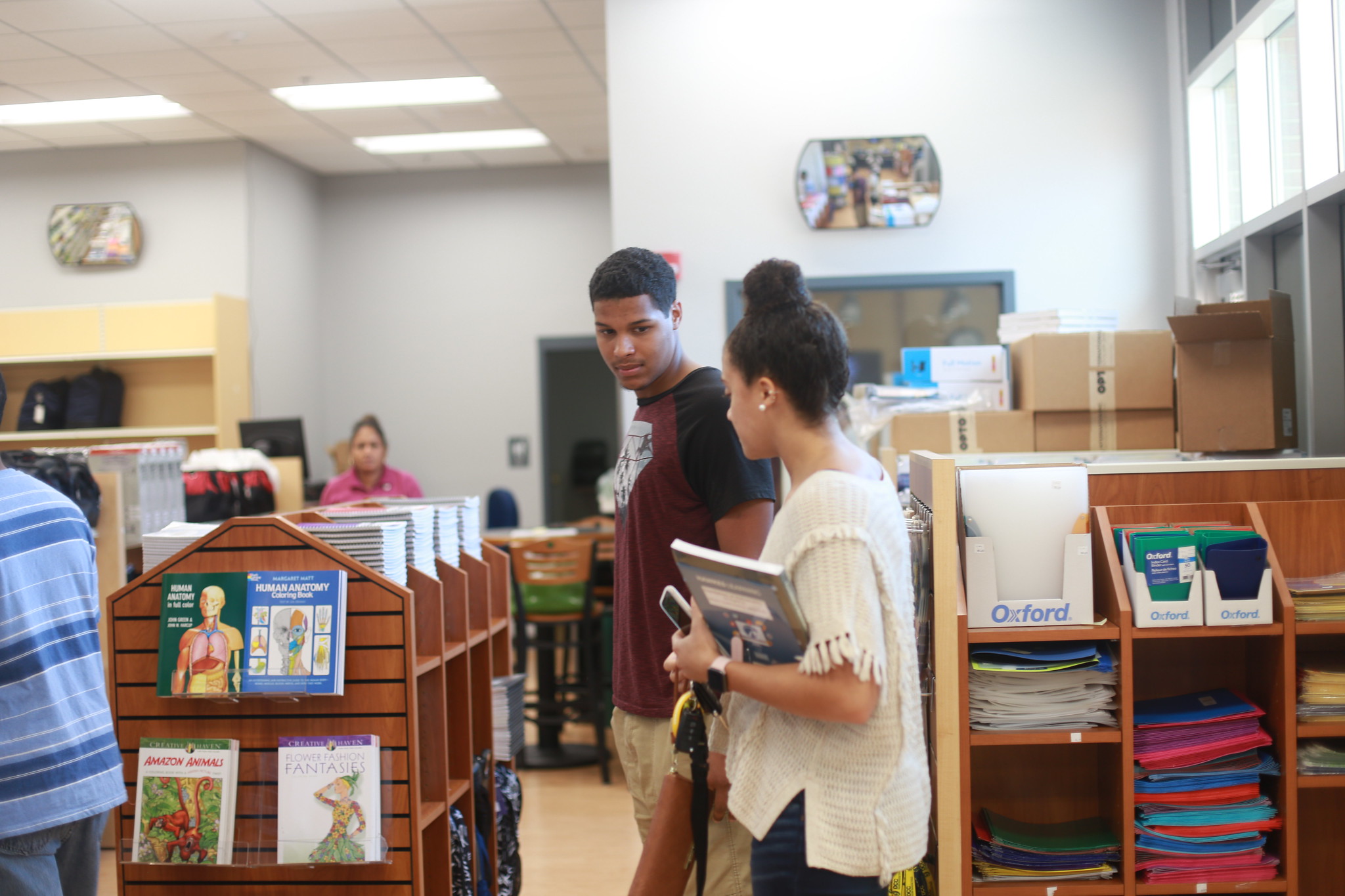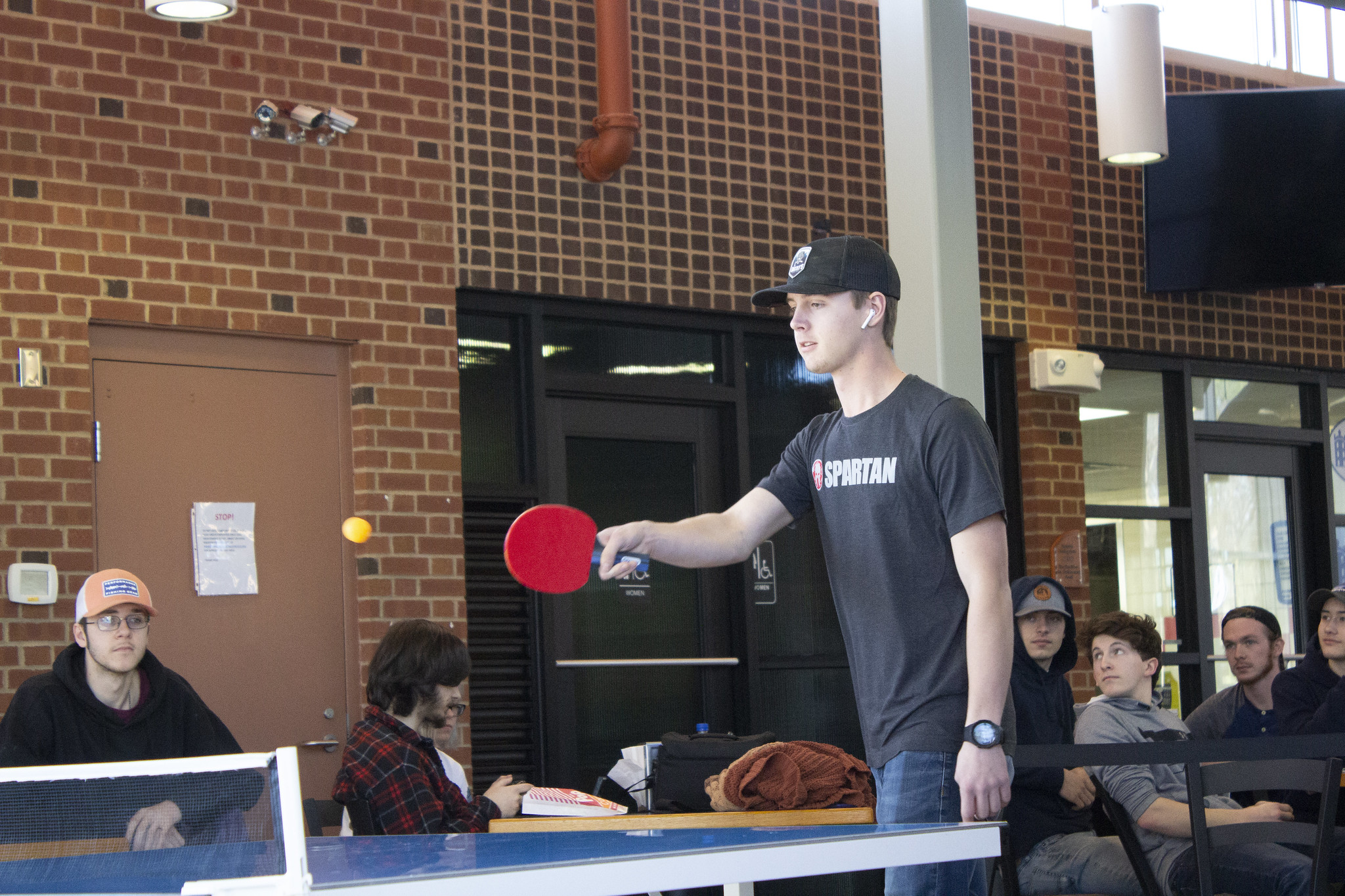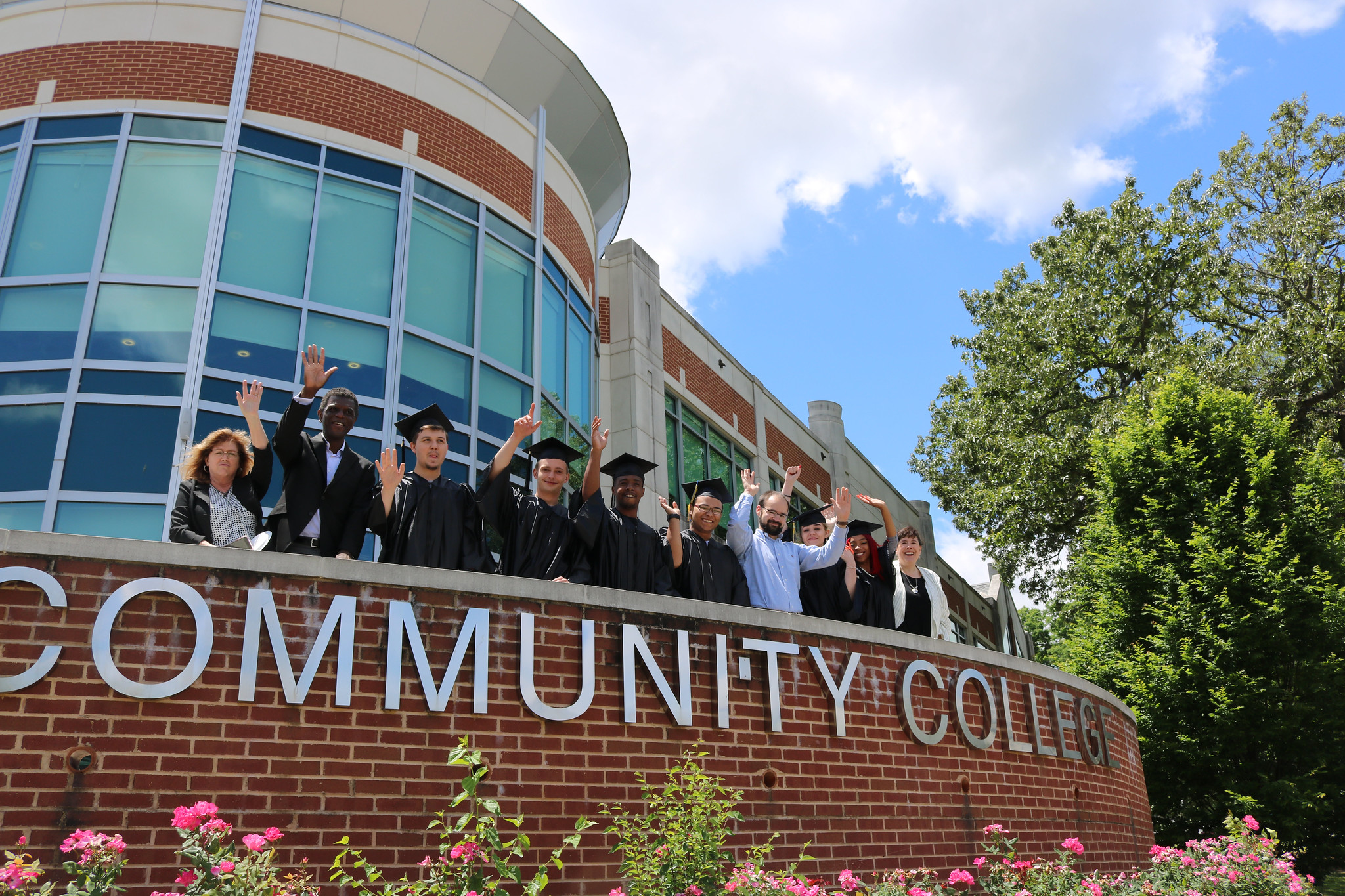Student Loan Policies and Procedures at DCC
All aid types awarded by DCC require that the student meet satisfactory academic progress requirements and the terms of each aid type. In order to borrow from any of the loan programs offered at DCC, the student must be enrolled half-time. Eligibility is confirmed at the point of loan awarding and certification and again prior to disbursement. Students who do not meet eligibility criteria will have loan monies returned to the lender.
Federal Loans
- DCC participates in the Direct Loan Program. Student loans are borrowed from the federal government.
- All loans must be repaid by the borrower and should be taken with extreme caution and forethought. Failure to repay a loan will negatively affect the student for years.
- First time borrower’s must complete a Master Promissory Note (MPN) and Loan Entrance Counseling (EC) before receiving the loan award. The MPN is a legal document in which you promise to repay your loan(s) and any accrued interest and fees to the U.S. Department of Education. It also explains the terms and conditions of the loan(s). The EC ensures the borrower understand the terms and conditions of the loan and your rights and responsibilities. You will learn what a loan is, how interest works, your options for repayment, and how to avoid default and delinquency.
- Until both the promissory note and loan counseling are completed, a student will not be awarded a loan to be used for tuition and fees or to purchase books at the campus bookstore.
- Loans are for the entire fall-spring enrollment and will have two disbursements, half in the fall and half in the spring if the student maintains eligibility. Loans are applied to the student’s account AFTER the last day to drop with a refund and enrollment has been verified. One-semester loans will be applied in two disbursements. Summer is a separate loan period.
- Loans for fall, spring and the following summer combined cannot exceed annual maximums.
- Loans and other financial aid are to be used only for costs pertaining to higher education attendance and cannot exceed need, if subsidized, and/or cost of attendance if filling Expected Family Contribution.
- Students cannot be in default on a federal student loan or must have made satisfactory arrangements to repay a defaulted loan.
- Students cannot receive a student loan or other aid if they owe money back on a federal student grant and have not made satisfactory arrangements to repay any such overpayment.
- Students cannot have borrowed in excess of the loan limits under Title IV programs at any institution. The amount you may borrow under the Loan program depends on your year in school and our dependency status. Review the Loan limits chart below to help you estimate the amount available to you.
- Students cannot request/receive loans from another school for the same or an overlapping loan period if total borrowed exceeds annual or lifetime maximums.
- Loans are credited to student accounts at DCC. After school costs are covered, excess amounts will be returned to the student from the State of Virginia, to be used for other educational costs.
- Loan disbursements for students not attending classes in at least six credits or not meeting satisfactory progress requirements will be returned to the lender. Aid cannot be disbursed until student shows at least 6 credits for the term have reached census date.
- Additional information regarding loans and access to the Master Promissory Note and loan counseling can be found at https://studentaid.gov/.
Federal Direct Student Loans –
Direct Loans are borrowed from the federal government. Accepted loans are listed on the National Student Loan Database (NSLDS), where students also can monitor their loan history and outstanding loan volume.
Subsidized Federal Direct Stafford Loan – To be eligible for the subsidized Stafford Loan, a student must show need and be enrolled at least half-time. The government subsidizes the loan by paying the interest for the student during periods of at least half-time enrollment and for a six-month grace period following the student’s graduation or withdrawal from college. First-year students are eligible for up to a maximum of $3500; students reaching sophomore status can borrow up to $4500.
Unsubsidized Federal Direct Stafford Loan – The terms of the unsubsidized Federal Stafford Loan are slightly different than those of the subsidized Federal Stafford Loan. A student is not required to show need for the unsubsidized Federal Stafford Loan, and interest is the student’s responsibility from the beginning. The government does not pay interest for the student. Eligibility for a subsidized loan is considered first; if the maximum limit of $3500 for freshmen or $4500 for sophomores has not been met, an unsubsidized loan will be considered to fill Expected Family Contribution and reach the maximum eligibility limit. Since 2008–2009, dependent students have been able to borrow an additional $2000 of unsubsidized Stafford Loan; independent students, and dependent students whose parents are denied a PLUS, can have up to $6000 of additional unsubsidized eligibility. Unsubsidized loans cannot be awarded unless the student has unmet cost of attendance.
|
Eligibility Chart Loan type is determined by your eligibility for need based aid |
Dependent (As defined by FAFSA) |
Total Annual Limit |
Independent (As defined by FAFSA) |
Total Annual Limit |
||
|
Grade Level |
Base (generally Subsidized) |
Additional Unsubsidized |
|
Base (generally Subsidized) |
Additional Unsubsidized |
|
|
Freshman (Less than 30 earned credits) |
$3,500.00 |
$2,000.00 |
$5,500 |
$3,500.00 |
$6,000.00 |
$9,500 |
|
Sophomore (30 or more earned credits) |
$4,500.00 |
$2,000.00 |
$6,500 |
$4,500.00 |
$6,000.00 |
$10,500 |
|
Important information regarding eligibility: 1 – Fall and/or Spring loan amounts will affect the amount that is available for Summer semester. Summer requires a separate loan application but eligibility amounts are part of the Total Annual Limits indicated above. 2 – Students enrolled in Career Studies Certificate programs that require fewer than 24 credits to complete will have lower limits. 3 – Maximum lifetime combined undergraduate loan limits for a: Dependent Student is $31,000 and for an: Independent Student $57,500. This includes any prior loans at a prior institution. Your loan request may be adjusted or denied if you are close to or exceed these lifetime loan limits. |
||||||
Direct Parent Loan for Undergraduate Students (PLUS) – The PLUS loan is available to parents of dependent students to help meet remaining costs of education. Maximum eligibility is the total cost of education minus financial aid. Interest is the parent’s responsibility.
Packaging Student Loans
Subsidized and Unsubsidized Federal Direct Loans must be requested by the student, Direct Loans are not included in the packaging plan at DCC. PLUS loans are not packaged but will be added with parental request as eligibility exists. Currently, total subsidized and unsubsidized loan volume for the college is not limited. DCC will rescind loan offers if information is received that indicates a student’s ineligibility for the loan or the amount offered (i.e., student has borrowed over the annual or lifetime aggregates, loans recently defaulted, overpayments, debt to college, etc.)
Under federal regulations 34 CFR 685.301(a)(8), DCC has the right on a case-by-case basis to deny loans. DCC will deny loans after consideration on a case-by-case basis for the following:
- To deny loans to students with existing student loan debt that approaches or exceeds undergraduate aggregates ($31,000 with a maximum $23,000 in sub Stafford for dependent students; $57,500 with a maximum $23,000 in sub Stafford for independent students), whether previous loans were taken as undergraduate students or graduate students or whether outstanding balance is due to principal or principal plus interest.
- To deny a loan to any student with a previous default who has existing student loan debt from all sources equal to or greater than half the maximum aggregate limit in either subsidized or unsubsidized loans for the student’s status as dependent or independent student.
- To deny PLUS loans for parents with combined subsidized, unsubsidized, Perkins and PLUS loan debt exceeding subsidized and unsubsidized loan limits.
- Other circumstances that strongly indicate an unwillingness to repay or abuse of loan programs.
Additional Points for Consideration in Awarding/Revising Loans
DCC must determine eligibility at the point of loan certification and again at the point of loan disbursement. It is the responsibility of every staff member to consider eligibility requirements prior to awarding and during any aid revisions. Loans must be denied if:
- The student has not submitted required transcripts or other requested documents at the time of disbursement, and the requirement has not been temporarily waived
- Information is received that indicates ineligibility for the loan. (Examples, not all inclusive)
- The student has already borrowed the annual maximum.
- The student has exceeded lifetime maximums.
- The student is in default on a loan.
- The student did not enrolled in and/or is not attending 6 credits.
34 CFR 685.301(a)(8) Origination of a loan by a Direct Loan Program school
(8) A school may refuse to originate a Direct Subsidized, Direct Unsubsidized, or Direct PLUS Loan or may reduce the borrower's determination of need for the loan if the reason for that action is documented and provided to the borrower in writing, and if—
(i) The determination is made on a case-by-case basis;
(ii) The documentation supporting the determination is retained in the student's file; and
(iii) The school does not engage in any pattern or practice that results in a denial of a borrower's access to Direct Loans because of the borrower's race, gender, color, religion, national origin, age, disability status, or income.
Student Rights and Responsibilities
Student Rights
As a Loan Borrower, you have the right to:
• Receive a copy of your Master Promissory Note.
• Receive a repayment schedule.
• Have a six month period before repayment begins.
• Repay your loan at any time without penalty.
• Apply for a deferment or forbearance if you can’t make the payments.
• Receive notice if your loan is transferred between servicing companies or is sold to another lender.
• Receive notice when your loan has been paid in full.
You have the right to refuse Federal Stafford Loans even after you have signed the promissory note. If you choose to cancel or reduce the loan award, you must submit your refusal in writing to the Financial Aid Office.
If you have outstanding charges at the time of refusal, you must pay them in full at that time.
Student Responsibilities
To fulfill your responsibilities as a Loan borrower, you must:
• Carefully review the Terms and conditions of your loan.
• Complete Entrance Counseling before you receive loan funds and complete Exit Counseling before you begin repayment.
• Repay your loan even if you don’t complete your education.
• Make loan payments even if you don’t receive a bill.
• Keep copies of all your loan documents.
• Contact your lender or loan servicer when you can’t make a monthly payment, change your name, address, phone number, transfer between schools, or change your anticipated graduation date.
Federal Stafford Loan Exit Counseling
Students are required to complete Exit Counseling if:
• You do not enroll in at least 6 credits.
• You drop/withdraw from classes to less than 6 credits
• You withdraw fully from the college.
• You do not begin classes in a subsequent semester.
• You complete and graduate from a program.
Exit counseling for students is available at www.Studentaid.gov.
Understand the necessity of Repayment –
It is important to remember that you must repay your loan even if you fail to complete your degree, are unhappy with your education, or can’t find immediate employment after graduation. If you are late with just one payment—simply miss a payment—your loan will be considered delinquent and you may incur late fees. If you stop making Loan payments altogether, you’ll be considered in default after 270 days have passed with no payment. Default is very serious and can negatively affect your credit rating for years. If you are ever unable to make your monthly loan payments, contact your lender or loan servicer immediately. Under certain conditions, you may be eligible for a deferment or forbearance and our loan payments may be temporarily reduced or stopped.







